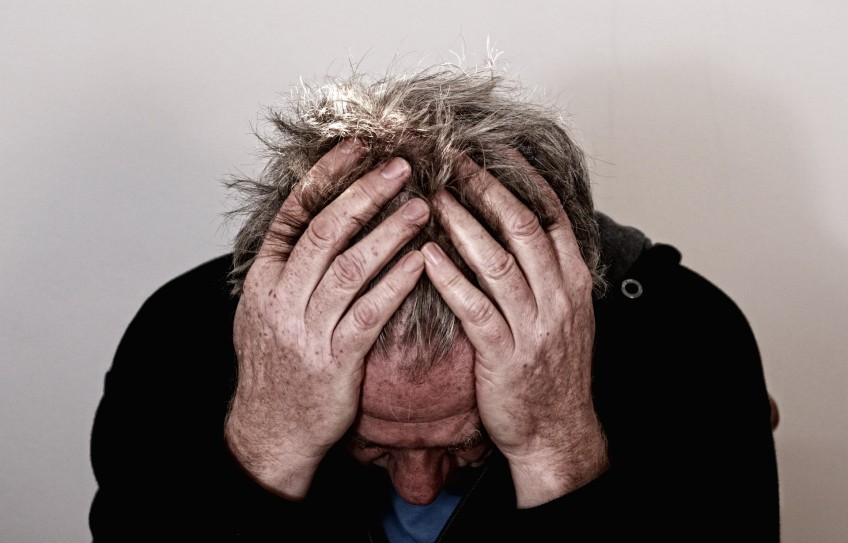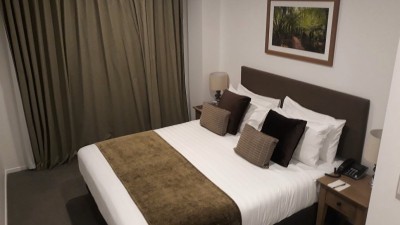
Friend 'disgusted' at Queenstown's mental health crisis care
A Whakatipu woman who sought help for a friend and housemate experiencing extreme mental distress says she thinks Queenstown’s emergency support services let them down badly.
The case exposes the weakness of a system that doesn’t have a local fit-for-purpose care facility.
While her mate had a support network able to kick in and pick up the slack of the public health system, she’s worried that someone else, vulnerable and in need of care, may not be as lucky.
The woman says her friend was given a voucher for a three-night stay at a Frankton hotel and received no follow-up contact from staff for two nights despite being assessed as being in an acute state.
“I am appalled and disgusted by the treatment,” she says.
“If he had taken his own life, for me it would be on their hands.”

An isolated hotel room - the answer to emergency accommodation for distressed mental health patients in Queenstown (Image: Trip Advisor)?
She has now made a complaint to the Office of the Health and Disability Commissioner.
Part of the problem is the district has no emergency mental health facilities.
Dan Pallister-Coward, the South Island boss for hospital and specialist services with Te Whatu Ora, says for now a local patient needing in-patient emergency mental health care has to travel to Invercargill or Dunedin.
But work is underway to improve on this.
Mr Pallister-Coward is hopeful a public facility able to house people in crisis in the district will be operational later this year – it is the last phase of a new crisis support service being rolled out to fill what Crux has been told has been a gap in care.
“This will provide more local options to support people in mental distress, including those who may have otherwise needed to travel out of the area to access acute inpatient mental health services.”
For obvious reasons of patient confidentiality, Mr Pallister-Coward would not comment on the specific case raised with Crux, but he did say hotel vouchers are one option able to be offered by staff to patients after a clinical assessment and in discussion with them.
Generally, when a patient is assessed and it is determined their care can be managed locally, a plan will be put in place in collaboration with the patient and their identified support people, he says.
However, the Whakatipu woman says she was not consulted on any of the decided course of action for her friend, despite having to play a vital role in their immediate care.
Her friend has lived with her for three months and during that time she says she felt like she’s “lived on eggshells”.
Two weeks ago, she describes a “crisis situation” at the house.
She rung a mental health helpline at 2am, but was told to call back in the morning, after 8am. At 8.01am she was on the phone seeking help, only to be told to try again after 8.30am.
She ditched that idea and instead secured an emergency appointment at Queenstown Medical Centre, her own local GP, with the consent of her friend.
There, the system appeared to kick into action – with her and her friend being seen by separate staff.
“This gorgeous, gorgeous nurse came and took my hand and said, ‘You may have saved his life today, thanks for bringing him in’, and reinforced that he was going to be taken care of.
“She said he’d been assessed and he was in crisis and the mental health team was on the way. That made me cry because of the huge relief that he’d finally gotten help.”
The nurse reassured her: “We’ve got him, he’s safe with us, you’ve done a great job bringing him in, now go home and get some sleep”, she says.
Hours later, her friend was dropped off by the mental health team at her home, with an unfilled prescription and paperwork for a free hotel room for the next three nights.
“They told him the burden he placed on me in my own home was really strong and so they were putting him in an emergency accommodation over the weekend, and he will be returning to me on Monday after a break.”
She took him to a pharmacy to fill his prescription and then dropped him at the hotel – she says people can judge her for that but she felt at the time she needed to sub out and share responsibility for her mate’s welfare.
“When I dropped him off he was in pieces.
“I didn't know whether the right thing was to drop him off and he said, ‘(Name removed), that's fine. They're going to look after me. They're going to be checking up on me’.”
She asked him to promise that when she texted him he would reply.

She says she picked up her friend from the hotel and took him for a long walk with her dogs - no one else had been in contact.
Then, she returned home and rang a number for the mental health team locally, but was put through to Invercargill.
She told them she had “left him in a state” and that “somebody needed to check on him this evening”. She says the person at the end of the line said, "What do you expect me to do?".
She didn’t hear back again, despite being told someone would call her back with some options.
She checked in on her friend throughout the weekend – they headed out together for a walk on the Saturday and had brunch on the Sunday. She coordinated for another friend to take over for Saturday night dinner.
She says her distressed friend didn’t hear from anyone from the mental health team until Sunday morning, when staff reportedly told them they had twice tried to make contact on the Saturday but after no answer had assumed they had been supplied an incorrect number.
Her expectation had been of a different type of crisis care for her friend – in her mind it had involved some sort of facility with active supervision and a feeling of community.
“For me, when someone is in that frame of mind they feel despair, they feel isolated, and they isolate themselves, and the worst possible think to do is to put them in a, excuse my French, a f**king hotel room and leave them there for the weekend.
“It’s about putting the right procedures in place for somebody that doesn’t have the friends like what we’ve been with him this weekend.”
She says she was given reassurances her friend was under the care of professionals and he was safe.
Her belief: “In actual fact, he wasn’t.”
She spoke with Crux about what she has heard from other people in the community directly impacted by the loss of a loved one, saying it appears many people are finding it tough at the moment in Queenstown.
She provided Crux a figure on how many people she has been told are suspected to have taken their own lives this year alone.
Others Crux has spoken to on the topic are hesitant to offer any comment on any suggested immediate trend, saying it simply isn’t helpful to do so.
The coroner, the official source of such data, says it only releases suicide figures yearly to ensure accuracy.
“Figures from a shorter random period of time and, given the figures rise and fall for many reasons, it would be irresponsible to release provisional numbers outside of that timeframe.”
Its most up-to-date public figure for a full calendar year is from 2021, when 53 people in the Southern region, which includes Dunedin and Invercargill as well as Queenstown, died of suspected suicide.
That was 15.2 deaths per 100,000 people – a jump on the two previous years but generally in line with the last decade.
Unfortunately, the region's suicide rate is high. That year, for example, the national suicide rate was 11.3, in Auckland it was eight.
The woman who came to Crux with her concerns wants there to be more of a community conversation about how people in crisis are supported.
“I feel there needs to be a voice on this...I can’t be a one-person warrior.”
One of her fears: In hearing this story, people may feel discouraged about asking for help.
She doesn’t want that to be the case – she just wants to help ensure the system kicks in and works well when they do.
Te Whatu Ora says it has beefed up wrap-around emergency mental health care in the district this year, with the new Central Lakes crisis support service launched in April.
This service is contracted to Central Lakes Family Services.
Mr Palliser-Coward says, “It sits alongside the 24/7 crisis response service and provides more local options to support people in mental distress, including those who may have otherwise needed to travel out of the area to access acute inpatient mental health services”.
People working in the sector spoken to by Crux say it appears to be working well to fill what had been identified as a gap in care.
A GP can refer a patient to either to specialist mental health services or to the new crisis support service, Mr Palliser-Coward says.
In response to questions from Crux, Queenstown Medical Centre, which saw the patient in this case, says its process for patients for whom they have mental health concerns is to request further support from Te Whatu Ora’s specialist team.
Next week Toa – The Play takes to the stage in Arrowtown.
It is flagged as interactive theatre, seeking to provide a forum to “bring the topic of suicide to the surface”.
The play itself has a monologue-style, inspired by the death of a friend of the writer. Afterwards there will be a forum for local people impacted by suicide to share their own experiences.
The aim, to talk “openly” and “compassionately” about the topic in the hope it “may just save a life”.
Need help?
- Phone emergency services on 111 for an immediate and serious situation when you are concerned for your safety or the safety of those around you.
- Contact Te Whatu Ora’s crisis line 24 hours a day on 0800 467 846 (press 1 for Southland or 2 for Otago) if the situation does not require an immediate urgent response. The line reaches an emergency psychiatric team that can help with treatment, assistance and information.
- Visit your GP as a good first step to check in on your health, have medications prescribed and appropriate specialist referral.
National helplines
- Free phone or text 1737 24 hours a day for support from trained counsellors in more than 40 languages.
- Lifeline 0800 543 354 or free text 'help' to 4357 24 hours a day for confidential support from highly trained volunteers and staff. Lifeline also operates a suicide crisis helpline on 0508 828 86524 24 hours a day if you think you, or someone you know, may be thinking about suicide.
- Youthline 0800 376 633 or text 234 or webchat on youthline.co.nz.
Main image: Gerd Altman/Pixabay






























